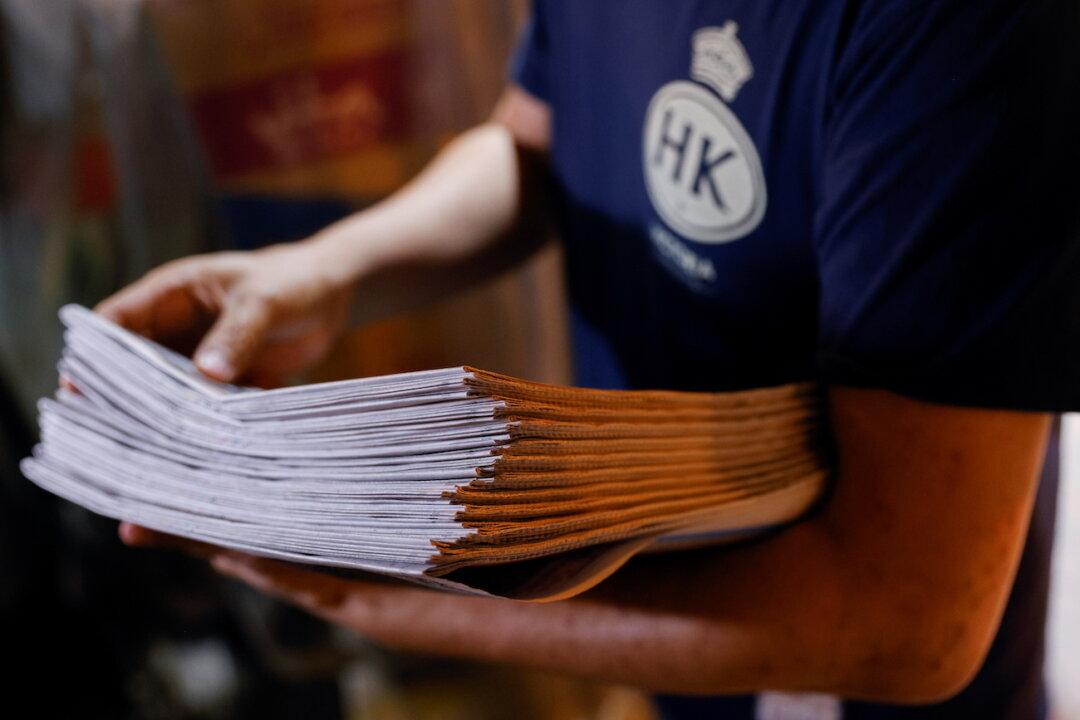Apple Daily, regarded as among the few independent media outlets in Hong Kong, will halt its operations by midnight on June 25 with its last print edition coming on June 24, after police froze assets linked to the paper and arrested its executives.
Next Digital is an investment holding company with a focus on media and publishing businesses. The Next Digital board had previously said that the last print edition would be on June 26 with the digital version accessible until 11:59 p.m. on the same day.
“The company thanks our readers for their loyal support and our journalists, staff, and advertisers for their commitment over the past 26 years,” the board said in a statement.

Hong Kong police cited more than 30 articles published by Apple Daily in accusing the newspaper of being part of an alleged conspiracy to impose foreign sanctions on Hong Kong and China, saying that the reports breached the national security law. It marks the first case in which authorities have cited media articles as potentially violating the legislation.
Authorities have also frozen HK$18 million ($2.3 million) in assets of three companies linked to the paper.
Apple Daily is known for its critical coverage of the Chinese Communist Party (CCP) and the current pro-Beijing Hong Kong government over past years of mass protests.
More than 100 people have been arrested under the national security law to date.
Earlier on Jue 23, Hong Kong police arrested a 55-year-old man “on suspicion of conspiring to collude with foreign countries or foreign forces to endanger national security.” Apple Daily identified the man as its lead opinion writer who uses the pseudonym Li Ping.
The publication’s forced closure has drawn condemnation from the UK and the European Union. British Foreign Secretary Dominic Raab described it as a “chilling blow to freedom of expression in Hong Kong.”
The EU also condemned the “erosion of press freedom” in Hong Kong.
“Its closing seriously undermines media freedom and pluralism, which are essential for any open and free society. The erosion of press freedom is also counter to Hong Kong’s aspirations as an international business hub.”




